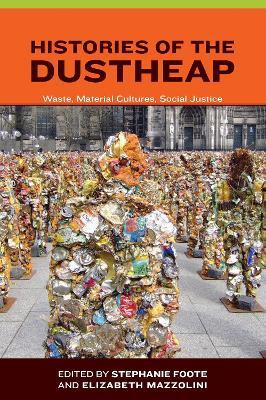Histories of the Dustheap(English, Paperback, unknown)
Quick Overview
Product Price Comparison
An examination of how garbage reveals the relationships between the global and the local, the economic and the ecological, and the historical and the contemporary. Garbage, considered both materially and culturally, elicits mixed responses. Our responsibility toward the objects we love and then discard is entangled with our responsibility toward the systems that make those objects. Histories of the Dustheap uses garbage, waste, and refuse to investigate the relationships between various systems-the local and the global, the economic and the ecological, the historical and the contemporary-and shows how this most democratic reality produces identities, social relations, and policies. The contributors first consider garbage in subjective terms, examining "toxic autobiography" by residents of Love Canal, the intersection of public health and women's rights, and enviroblogging. They explore the importance of place, with studies of post-Katrina soil contamination in New Orleans, e-waste disposal in Bloomington, Indiana, and garbage on Mount Everest. And finally, they look at cultural contradictions as objects hover between waste and desirability, examining Milwaukee's efforts to sell its sludge as fertilizer, the plastics industry's attempt to wrap plastic bottles and bags in the mantle of freedom of choice, and the idea of obsolescence in the animated film The Brave Little Toaster. Histories of the Dustheap offers a range of perspectives on a variety of incarnations of garbage, inviting the reader to consider garbage in a way that goes beyond the common "buy green" discourse that empowers individuals while limiting environmental activism to consumerist practices.


